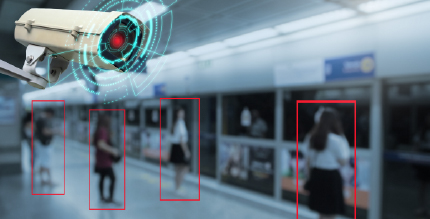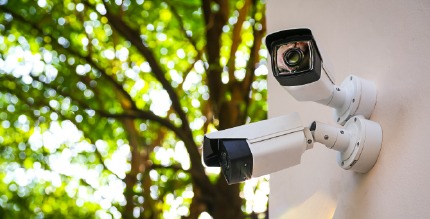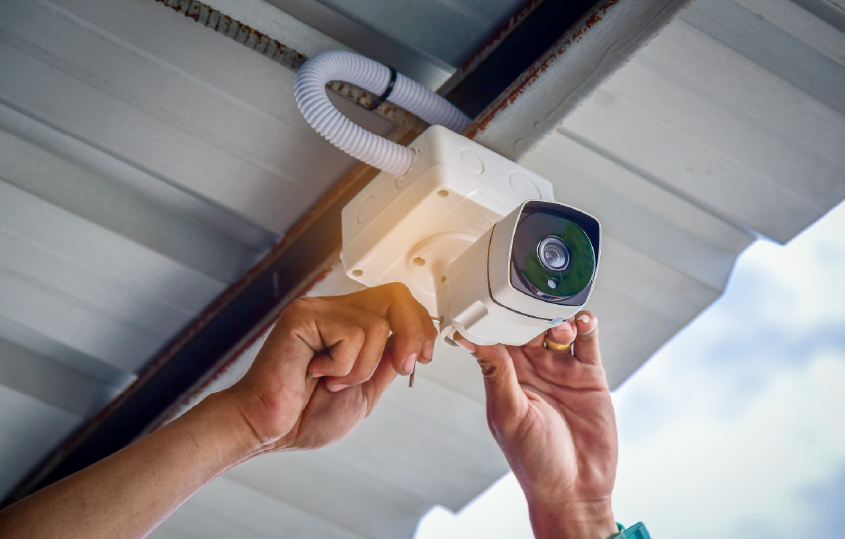Security cameras have become an integral part of our modern lives. Whether by protecting our homes, businesses, or public spaces, these surveillance systems provide valuable information and evidence for investigations. However, have you ever asked yourself, how long do security cameras keep footage? Understanding the footage retention periods for these cameras is essential for those who rely on these systems for their safety.
In this blog post, we will explore the various factors that influence these retention periods, including legal regulations and the purpose of these surveillance systems, and gain insight into typical durations for residential and commercial properties. Furthermore, we will discuss the technological advancements and storage options that have revolutionized how security camera footage is stored.
How Video Footage Is Stored
There are a few different video storage options available, which depend on the type of security camera you choose and how that particular security camera stores footage. Security cameras can be used to record video onto VHS tapes or DVDs, but most modern security camera systems use servers, hard drives, SD cards, or cloud storage to store video footage.
Servers and Hard Drives
Traditionally, surveillance systems had storage solutions on property premises, such as Digital Video Recorders (DVRs) or Network Video Recorders (NVRs). These devices were responsible for capturing, compressing, and storing video footage locally. Normally, the data was saved on hard drives or network-attached storage devices. They’re still used today, but many of these systems have been modernized to implement a cloud storage system or store data on SD cards rather than DVDs or VHS tapes.
Cloud Storage
With technological advancements, cloud-based storage has gained popularity in the realm of surveillance systems. Since cloud storage allows for off-site storage, they eliminate the need for physical hardware and allow for remote access to the data. This approach allows for increased scalability, automatic backups, and easy retrieval of footage. It also ensures footage stays secure in the event of physical damage or hardware failure. Many NVRs have been moving to cloud-based storage capabilities.
SD Cards
If you find cloud storage untrustworthy but want something more modern than a server or hard drive, many cameras come with built-in memory but will require an additional SD card for more memory. The storage space you buy will determine the footage you can save to an SD card and make for useful backup systems when combined with a video server.

Factors Affecting Camera Surveillance Storage
Several factors influence how long security cameras keep the footage they store. One of the primary considerations involves legal requirements and regulations that govern the storage capacity of IP cameras. In the state of Texas, there is no minimum or maximum retention period for surveillance footage. However, consulting with legal experts can determine this answer depending on your location.
How Long Footage Is Stored
With home security cameras, homeowners typically store footage for a few days or a few weeks, depending on the amount of storage space available and personal preference.
With commercial properties, the industry standard can range from 30-90 days, or entities may even store footage for longer depending on legal obligations. Banks and financial institutions, for example, may retain footage for several months or years, while a retail store may retain footage for only a month or two.
Ultimately, the duration for which surveillance cameras store video footage can be customized based on the specific needs and requirements of the user.
What Happens to Old Footage
In many cases, once the retention period has passed, the old footage is deleted or overwritten with new footage the cameras record. This helps free up storage space for new recordings and ensures compliance with data protection and privacy regulations. However, if the footage is needed for an ongoing legal investigation or proceedings, it might be necessary to retain it for a longer period.
Ways To Keep Footage Longer
The most straightforward way to extend your retention period is to purchase more storage, but this can be costly or it may just not be an option. Some other ways to keep footage longer include:
Scheduled Recording
Recording continuously means your security system probably has a lot of irrelevant footage. By using motion-detection cameras or scheduling recording times, you can maximize the life of your storage space. Scheduling your cameras to only record at specific times of the day, such as only recording at night, can cut down on wasted storage space.
Video Compression
Compressing video footage helps reduce the size of your footage and makes more room in the storage system. Video compression only goes through and removes unnecessary files to make them smaller—it won’t impact the quality or content of your footage.
Export Footage
Exporting security camera footage onto a separate hard drive or a computer helps free up space in your main video storage system. Additionally, you can keep your footage indefinitely. This can be time-consuming, as you might want to only back up important footage onto another device. An additional benefit is that if you store your footage at a separate location, no intruders can gain access to your footage.

Feel Secure With Mesa Alarm Systems
Understanding how long security cameras keep footage is essential for maintaining a security camera system. While there are legal requirements and industry standards that influence retention periods, the specific duration can vary depending on factors such as the purpose of the surveillance system and available storage capacity. Advances in technology, including cloud-based storage solutions, have provided more flexibility and scalability in retaining footage for extended periods.
If you reside in the Houston area and need guidance on choosing the best option for your home or business, Mesa Alarms is your trusted partner. Whether it’s upgrading storage capacity, implementing cloud-based solutions, or optimizing compression techniques, Mesa Alarms can guide you in making informed decisions to enhance the security of your property while respecting privacy concerns. Consult with Mesa Alarms today by visiting our website.



